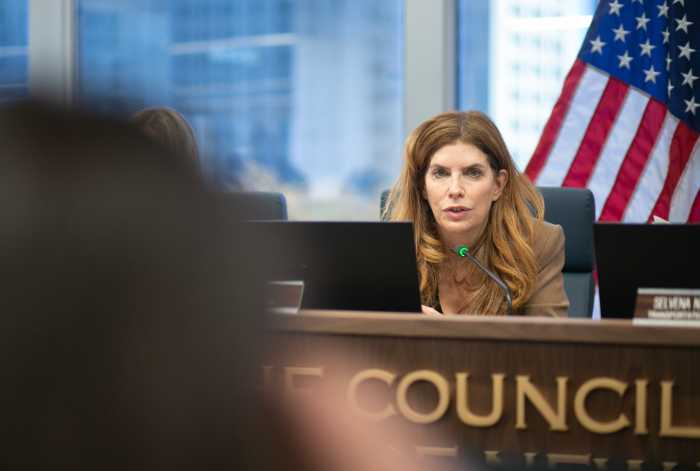Director Bartlett Sher is a genius at finding the subtlety in characters. Whether in his groundbreaking revival of “Awake and Sing” or “The Light in the Piazza” or currently in the splendid revival of “The King and I” at Lincoln Center, the productions he helms, though often large in scope, are also typically filled with small moments of humanity that are profoundly moving. He lent each of those rich intellectual texture and contemporary relevance and emotive power.
Unfortunately, “Fiddler on the Roof” does not profit from nuanced exploration of themes and character, at least in Sher’s frustrating revival now on Broadway. Sholem Aleichem’s characters are a comic type — much like Dickens wrote. “Fiddler” is bold theater — loveable agitprop if you will. With its contemporary resonance in the politics of the moment, it should rouse us to the cruelty of religious persecution and its potential impact on even the least important individual… a milkman, for example. Forcing the story into a naturalistic telling blunts its impact.
The milkman Tevye, conflicted about his faith, needs to be larger than life as he argues with God and tries to hold on to tradition against the backdrop of a radically changing world. In musical comedy terms, he is like Mamma Rose in “Gypsy”; he needs to be as much a force as an individual for the show to deliver its full emotional impact. Danny Burstein’s Tevye, unfortunately, is small and introspective. Sher has ignored the vaudeville-like convention that has Tevye talking to God and the audience. The result is a production that is cerebral and distant, which is really too bad. Burstein is a wonderful performer with an incredible voice, but he needs more of the energy he had in Sher’s “South Pacific.”
Bartlett Sher’s “Fiddler on the Roof” never finds its balance
The treatment of Tevye is only one example of how downscaling the theatricality of “Fiddler” hurts the production. The pogrom at the end of Act One, for example, is about as bland as one could imagine. The safety and survival of Anatevka hangs in the balance, but there is never any palpable threat or tension on the stage. Even as three of Tevye’s five daughters make choices that challenge his core beliefs, it’s never clear how much is at stake, that we are watching a world on the verge of disappearing. Working against the piece as written, Sher has robbed it of its power to move and entertain.
The direction of other characters is similarly problematic. Jessica Hecht as Golden, Tevye’s wife, has some wonderful moments — such as in “Sabbath Prayer,” where we see how faith unites this village — but her performance is otherwise two-dimensional. Alexandra Silber as Tzeitel and Samantha Massell as Hodel give careful, competent performances, but there is never a sense of the huge risk each of them is taking in defying their father and tradition. Worse yet, Melanie Moore as Chava, the daughter who finally goes too far in marrying outside the faith, lacks the passion that causes her to put her love over her Judaism. When the three sing “Matchmaker, Matchmaker” early in the show, it’s surprisingly bleak. These are young girls playing with conventional ideas of marriage, not wizened cynics. The moment needs to be light to counterbalance the darkness that is to come.
Of the principals, only Adam Kantor as Motel, the tailor who wins Tzeitel’s heart away from an arranged marriage, and the excellent Ben Rappaport as Perchik, the revolutionary who takes Hodel away from her family, bring the kind of intensity and focus their roles require. Probably the most disappointing of all is how Sher has directed Alix Korey as Yente. Korey is a fantastic actress and a brilliant comedienne, and Yente is a perfect role for her at this stage in her career. Yet, as with Tevye, Sher has reined her in and robbed her of the broadness that’s written into the role. In all the productions I’ve seen of this show, I’ve never seen Yente not get exit applause for her first scene — which ends with her saying she was so glad to have had the chance for she and Golde to “talk their hearts out” when Golde has barely gotten a word in. Why Sher would blunt this comedy and the character’s spirit is a mystery.
The production is beautiful to look at, though the stark minimalism of Michael Yeargen’s set is more aesthetic than theatrical. Did Sher spend more time creating stage pictures than paying heed to the text or developing a consistent style? Catherine Zuber’s costumes never disappoint, and here she’s used texture and pattern to marvelous effect. Donald Holder’s lighting is inspired, as he seeks to marry Sher’s misguided approach with the demands of a musical. Hofesh Schechter’s choreography owes a heavy debt to Jerome Robbins’ original but with a vibrant and exciting contemporary athleticism.
As a show, “Fiddler” is imperfect. Not all of the songs are great, and the structure can seem dated, particularly in 2016 when compared to shows like “Hamilton” and “Fun Home.” Still, it has worked for more than 50 years. As with Shakespeare, a lot of what is needed to make it work is baked in. Knowing when — or whether — to take liberties can make the difference between a revelatory new perspective and, sadly here, a disappointment.
FIDDLER ON THE ROOF | Broadway Theater |1681 Broadway at W. 53rd St. | Tue., Thu. at 7 p.m.; Wed., Fri.-Sat. at 8 p.m.; Wed., Sat. at 2 p.m.; Sun. at 3 p.m. | $35-$142; telecharge.com or 212-239-6200 | Two hrs., 50 mins., with intermission















